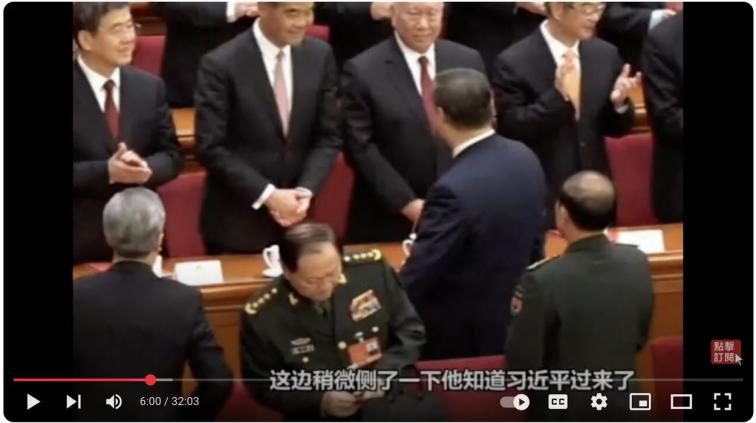Trump’s “four-arrow strategy” is like a final kick, pushing Xi into the final stage of his rule.
[People News] Following the CCP's 93rd military parade, the United States has altered its strategic planning. Scholars and think tanks in Guam are closely observing signs of a U.S. military strategic withdrawal and its implications for Guam, promptly releasing news in U.S. media regarding the withdrawal of Singaporean fighter jets from the island.
The U.S. National Defence Strategy (NDS) is anticipated to be unveiled by the end of this year. After the September 3 parade, POLITICO published reports concerning the draft of the NDS. Insiders have indicated that "Pentagon officials have suggested that the Department of Defence prioritise the protection of the homeland and the Western Hemisphere, which represents a significant departure from the military's long-standing focus on countering the threat from Beijing," signalling a major shift in the Trump administration's foreign policy.
In the Western Pacific region, the U.S. military's withdrawal has not been abrupt; it has been a systematic process that began during the Biden administration, involving a gradual pullback from the First Island Chain. In 2020, the U.S. established the Camp Blaz Marine Corps base in northern Guam to accommodate 5,000 soldiers relocated from the Okinawa base.
According to disclosures from the U.S. Government Accountability Office website in May, the U.S. military is planning to deploy additional missile defence systems and radar in Guam.
The South China Morning Post reported in September that the cancellation of the deployment of Singapore's F-15s in Guam signals the U.S. 'reallocating resources,' prompting Singapore to shift towards domestic training or collaboration with Australia and Japan. It is evident that Japan, Australia, the Philippines, India, and South Korea have all strengthened their military connections in the region, forming a closely-knit alliance.
I. U.S.-Japan Joint Military Exercises Deter the CCP.
On the evening of the 12th at 8:45 PM, residents of Weifang, Rizhao, and nearby areas in Shandong experienced a rare celestial event. A bright light suddenly streaked across the night sky, followed by a powerful flash and a loud bang, which caused panic among many citizens.
Videos captured by residents show that initially, two fireball-like bright spots sped across the night sky, their paths clearly parabolic and far exceeding the speed of ordinary aircraft. Shortly after, another luminous object rapidly ascended from the ground, intersecting with the fireballs in mid-air before exploding, illuminating the night sky with a brilliant white light. This was followed by two thunderous booms that caused some residents' windows to rattle.
On September 13, the Weifang Emergency Management Bureau informed mainland media that they had "not received any information" regarding the incident. As of now, mainland authorities have not issued a formal statement on the matter, and many mainstream media outlets have not provided further details.
The state-run media outlet "Sina.com" published an article suggesting that this incident resembled a missile interception test.
Analysts have speculated that the missile likely originated from the sea, possibly launched intentionally into Chinese territory during US-Japan military exercises to test the capabilities of the Chinese Communist Party's missile interception system.
Following the missile interception incident on the 12th, the China-US trade negotiations in Madrid proceeded unusually smoothly from the 14th to the 15th, with China shifting from a hardline stance and readily agreeing to sell TikTok.
2. Trump Visits the UK to Declare War on the CCP
On the 17th, King Charles III and Prince William held a grand welcome ceremony at Windsor Castle to greet Trump’s visit. Roya Nikkhah, royal news editor for the British "Sunday Times," noted, "In terms of national interest, this is of great significance to us and our government."
During Trump's second term, the relationship between the United States and the United Kingdom displays a dual nature. On one hand, the strong ties in intelligence, defence, military industry, and security have been institutionalised for a long time and are expected to continue in a stable manner. American high-tech companies are eagerly investing in the UK, partly due to its technological and talent advantages in areas like artificial intelligence, as well as the stability and reliability it offers as a partner. This pragmatic cooperation is a robust aspect of the special relationship between the US and the UK.
Media analyst Zhang Xiujie noted that the US is looking for loyal allies in Europe, and the UK fits this role perfectly. The US plans to collaborate with the UK in developing AI technology to counter the Chinese Communist Party (CCP), while also establishing new nuclear energy sources to support the energy demands of AI technology. This initiative will also provide solutions for Europe to lessen its reliance on Russian energy.
In his speech in the UK, Trump specifically highlighted the need to reclaim the US airbase in Afghanistan—Bagram—because it is located just an hour away from the CCP's nuclear weapons production facility.
(First published by People News) △











News magazine bootstrap themes!
I like this themes, fast loading and look profesional
Thank you Carlos!
You're welcome!
Please support me with give positive rating!
Yes Sure!